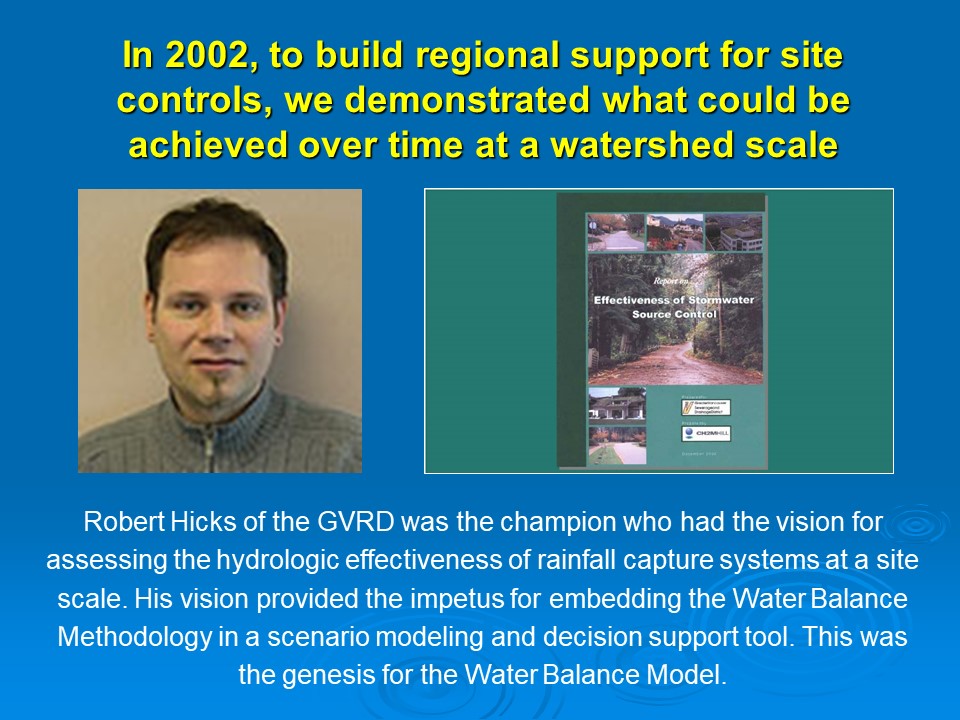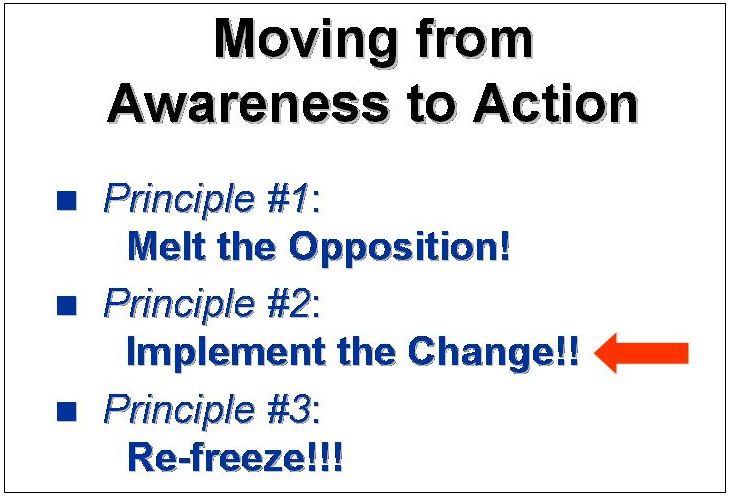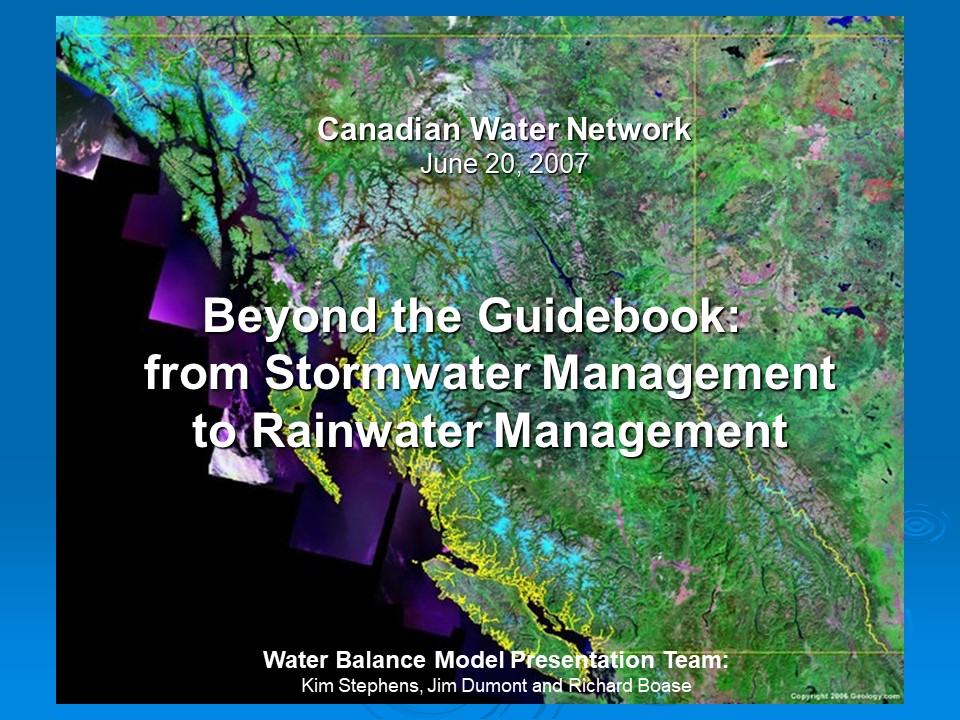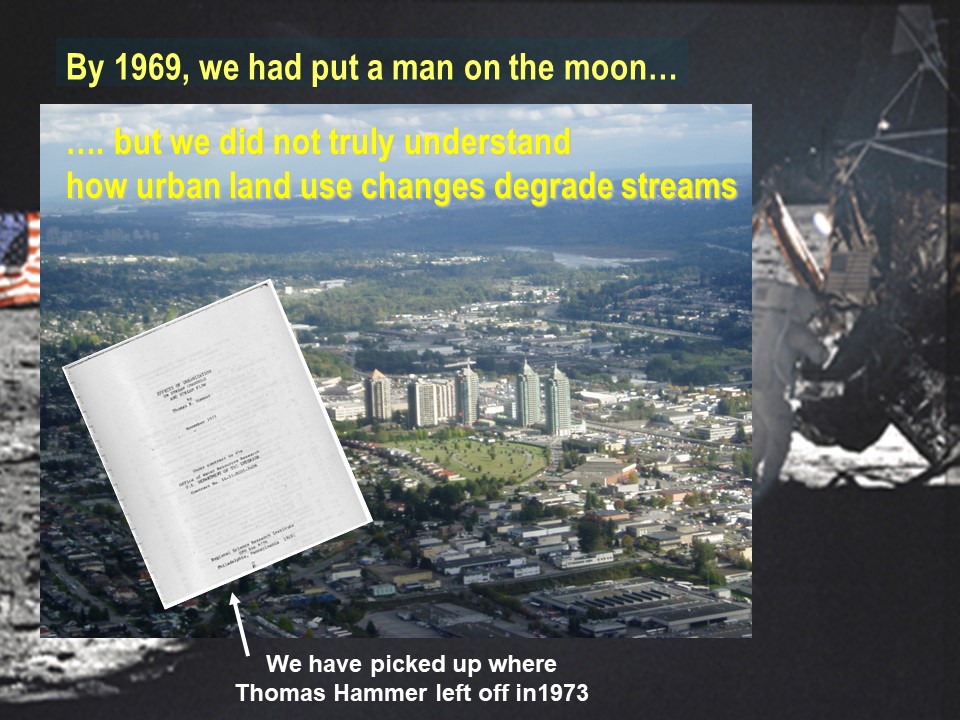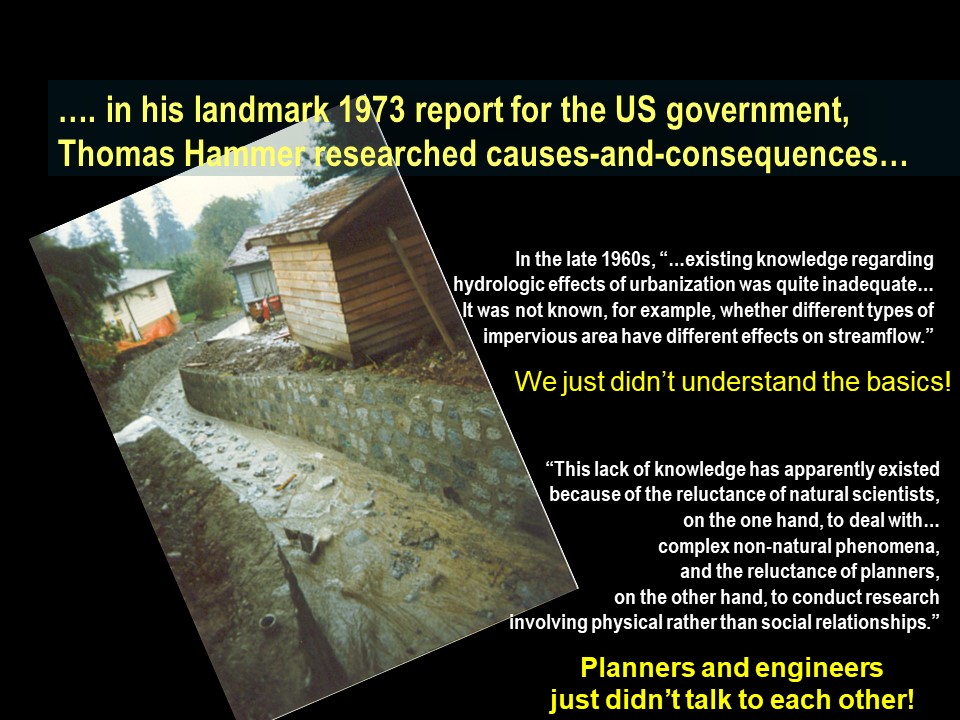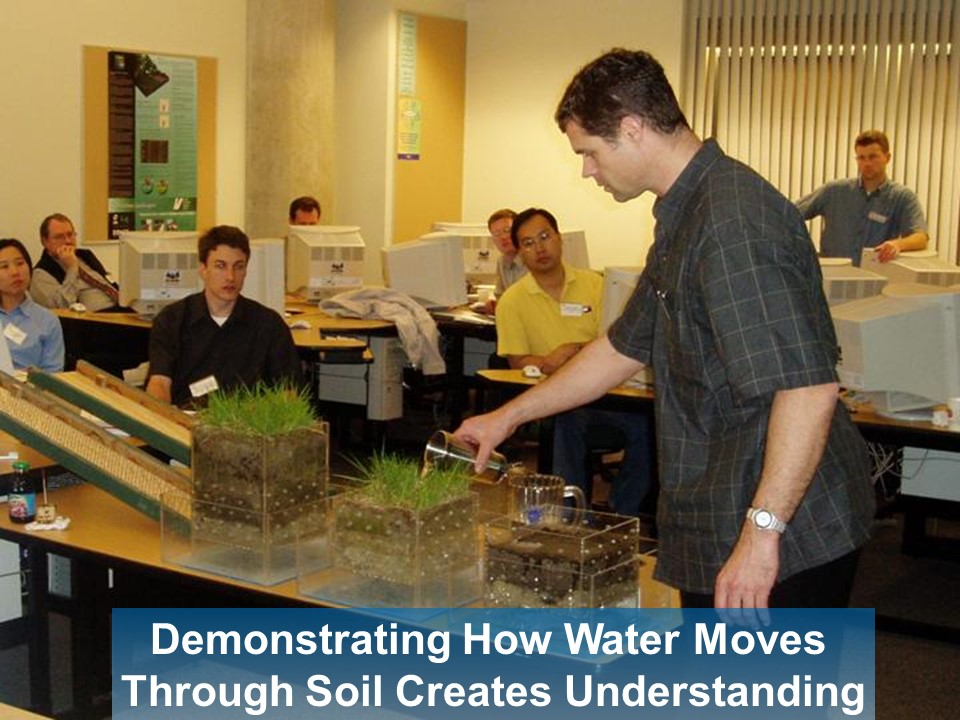FLASHBACK TO 2007: “Funding provided by the Canadian Water Network enabled us to bring together a pan-Canadian team of academics and practitioners”, stated Dr. Hans Schreier when introducing the vision for a National Knowledge Translation Strategy led by the University of BC
Note to Reader:
In June 2007, a team led by Dr. Hans Schreier and Dr. Sandra Brown of the University of British Columbia (UBC) kicked off a national ‘knowledge translation strategy’….for facilitating a paradigm-shift from single-function stormwater management to a multi-objective rainwater management way-of-thinking….when it convened a pre-conference workshop, conference and field tour on June 20 through 22 in Vancouver.
Canadian Water Network Launched Pan-Canadian Initiative at University of British Columbia Conference
“The Vancouver get-together is the first of three cross-Canada working sessions, and will be followed by an event in Calgary later in 2007, with the third event to be 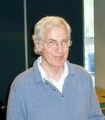 held in Toronto in early 2008”, reports Dr. Schreier.
held in Toronto in early 2008”, reports Dr. Schreier.
“Funding provided by the Canadian Water Network is enabling us to bring together a pan-Canadian team of academics and practitioners”, explains Dr. Schreier, “As an adjunct to each working session, we are also hosting a two-day public event on state-of-the-practice in each region.”
Tri-University Collaboration
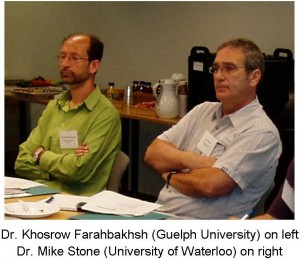 Three universities are involved in the project, namely: UBC, Guelph and Waterloo. Three local government organizations are also involved in order to provide a practitioner perspective for each of three participating provinces, namely: City of Calgary (Alberta), District of North Vancouver (British Columbia), and the Toronto Regional Conservation Authority (Ontario).
Three universities are involved in the project, namely: UBC, Guelph and Waterloo. Three local government organizations are also involved in order to provide a practitioner perspective for each of three participating provinces, namely: City of Calgary (Alberta), District of North Vancouver (British Columbia), and the Toronto Regional Conservation Authority (Ontario).

The UBC Event – An Overview
Day One of the Vancouver public event comprised a set of 11 presentations and was designed to provide a broad-brush picture of a range of research and on-the-ground initiatives that are underway across the country. A unifying theme was the need for a ‘water balance’ approach. The program design is summarized as follows:
- Morning session: five presentations ( three by researchers and two by practitioners) on Ontario projects; and one presentation on Alberta (by Liliana Bozic, City of Calgary)
- Afternoon session: one presentation on New Zealand experience (by Dr. Maggie Lawton) and four presentations (two by practitioners and two by researchers) on British Columbia projects and/or programs.
The event attracted a diverse audience of over 80 people representing local government, academia, environmental agencies, the private sector and non-government organizations.
To Learn More:
To download a copy of the agenda for the two-day event, click on UBC Workshop and Conference Program.
Overcoming Fear and Doubt in British Columbia
The conference day concluded with this question being posed to a panel of practitioners: Obstacles to innovations; how to introduce changes into stormwater management? Kim Stephens provided historical context.
“ Actually, in British Columbia we have moved beyond that question. It symbolizes where our mind-set was during the 2000-2001 period when we literally had to overcome fear and doubt in order to move ahead with projects such as the East Clayton Sustainable Community in Surrey, and UniverCity on Burnaby Mountain,” stated Kim Stephens, speaking on behalf of the Water Sustainability Action Plan for British Columbia.
Actually, in British Columbia we have moved beyond that question. It symbolizes where our mind-set was during the 2000-2001 period when we literally had to overcome fear and doubt in order to move ahead with projects such as the East Clayton Sustainable Community in Surrey, and UniverCity on Burnaby Mountain,” stated Kim Stephens, speaking on behalf of the Water Sustainability Action Plan for British Columbia.
“ In 2000 and 2001, we were literally hanging on by our fingernails,” explained Stephens. “At the time, it was Patrick Condon who said…“if we fail, it will be a generation before anyone will even have the opportunity to try again; so we must not fail”…Well, we did not fail! And because we succeeded with East Clayton and UniverCity, those hard-fought successes have ultimately made it possible to hold this conference and talk about current successes.”
In 2000 and 2001, we were literally hanging on by our fingernails,” explained Stephens. “At the time, it was Patrick Condon who said…“if we fail, it will be a generation before anyone will even have the opportunity to try again; so we must not fail”…Well, we did not fail! And because we succeeded with East Clayton and UniverCity, those hard-fought successes have ultimately made it possible to hold this conference and talk about current successes.”
To Learn More:
Visit Overcoming Fear and Doubt to Implement Changes in Infrastructure Standards to read the complete story about the presentation by Kim Stephens.
Download Overcoming Barriers to view a set of PowerPoint slides that guided his panel remarks to the UBC audience.

A Day in the Field
Day Two of the Vancouver public event included a bus tour that followed in the footsteps of a capacity-building program pioneered by the Green Infrastructure Partnership in 2006.
Water Balance Model for Canada
From a British Columbia perspective, the event design had a distinct Water Balance Model flavour. The pre-conference workshop included a half-day session that:
- Provided historical context on the British Columbia experience in establishing a North American precedent for implementing a performance target approach to rainwater management: and
- Introduced a national audience to the land development mission and stream health objectives of the Inter-Governmental Partnership in developing the Water Balance Model powered by QUALHYMO.
The pre-conference workshop was conducted by the Inter-Governmental Partnership presentation team comprising Kim Stephens, Richard Boase and Jim Dumont.
To Learn More:
To download a copy of their tag-team presentation, please click on this link to Beyond the Guidebook: from Stormwater Management to Rainwater Management.
A British Columbia Perspective
 According to Ted van der Gulik (BC Ministry of Agriculture & Lands), Chair of the Inter-Governmental Partnership that developed the Water Balance Model in 2003, “The Inter-Governmental Partnership appreciates the efforts by Hans Schreier and his UBC team in creating this opportunity for us to meet with key local government leaders from Calgary and Toronto”.
According to Ted van der Gulik (BC Ministry of Agriculture & Lands), Chair of the Inter-Governmental Partnership that developed the Water Balance Model in 2003, “The Inter-Governmental Partnership appreciates the efforts by Hans Schreier and his UBC team in creating this opportunity for us to meet with key local government leaders from Calgary and Toronto”.
“In 2004, and in partnership with Canada Mortgage & Housing Corporation, we created the national portal for the Water Balance Model at www.waterbalance.ca. Having the portal in place enabled British Columbia to initiate one-on-one discussions with Alberta and Ontario regarding inter-provincial partnerships with British Columbia.”
“As a conference outcome, discussions are now progressing regarding the mutual benefits of a three-way partnership that we hope will result in a rollout of the Water Balance Model across the country”, adds Ted van der Gulik.
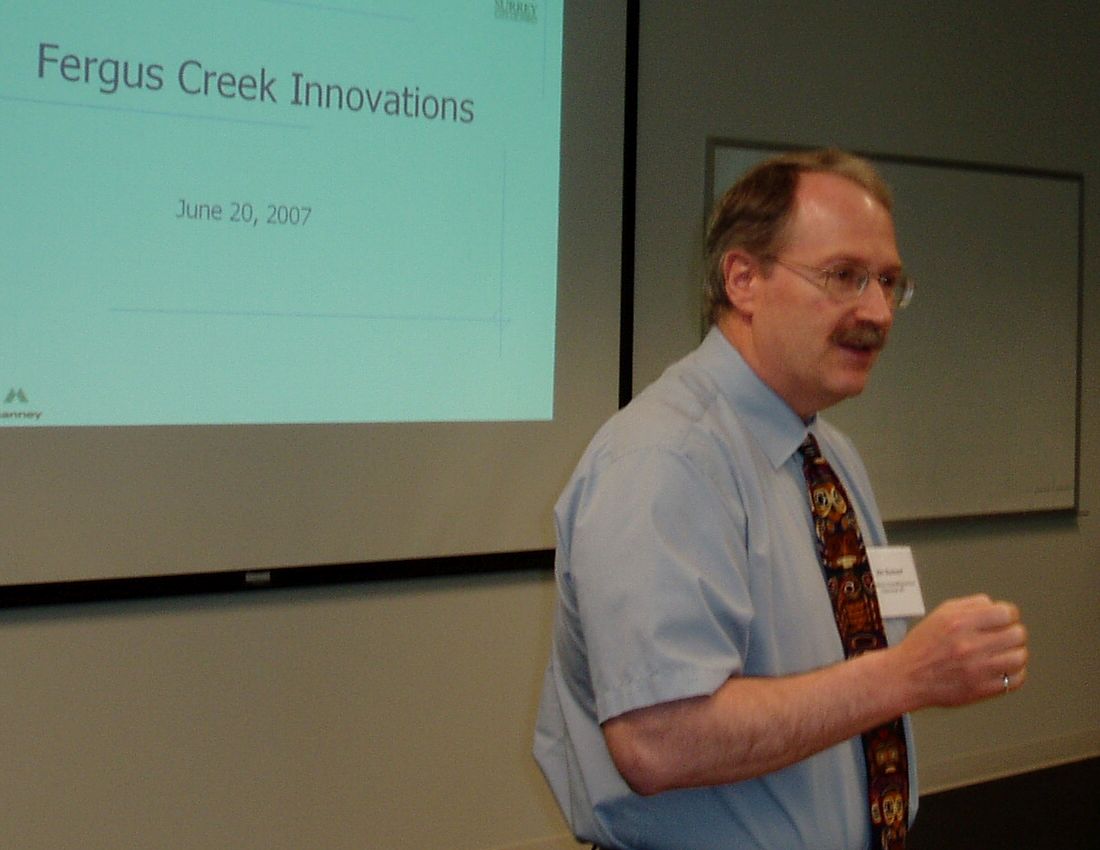
Jim Dumont explains the innovation underpinning the strategy for the Fergus Creek Watershed Plan, City of Surrey
An Alberta Perspective
I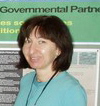 n commenting on what was accomplished by the conference, Liliana Bozic (City of Calgary) observed that: “The conference served as a timely reminder that we need to judge our progress and hence our success by the distance we have traveled, rather than the distance remaining to reach a goal. In Calgary, we have come a remarkably long way in the past three years.
n commenting on what was accomplished by the conference, Liliana Bozic (City of Calgary) observed that: “The conference served as a timely reminder that we need to judge our progress and hence our success by the distance we have traveled, rather than the distance remaining to reach a goal. In Calgary, we have come a remarkably long way in the past three years.
An Ontario Perspective
 Glenn MacMillan (Toronto and Region Conservation Authority) added that: “Earlier this year we completed an evaluation of the current Water Balance Model. We are interested in partnering with British Columbia because we believe the next generation of this online tool can fill a gap in meeting the needs of the Toronto development community. There is a demand for a practical and easy to apply tool that will help developers and their consultants make better land use decisions.”
Glenn MacMillan (Toronto and Region Conservation Authority) added that: “Earlier this year we completed an evaluation of the current Water Balance Model. We are interested in partnering with British Columbia because we believe the next generation of this online tool can fill a gap in meeting the needs of the Toronto development community. There is a demand for a practical and easy to apply tool that will help developers and their consultants make better land use decisions.”
New Directions in Urban Watershed Health
As part of the main conference program, Richard Boase of the District of North Vancouver also made a presentation titled New Directions in Urban Watershed Health. This provided conference attendees with an overview of how the Water Balance Model enables local governments and the land development community to make better decisions.



